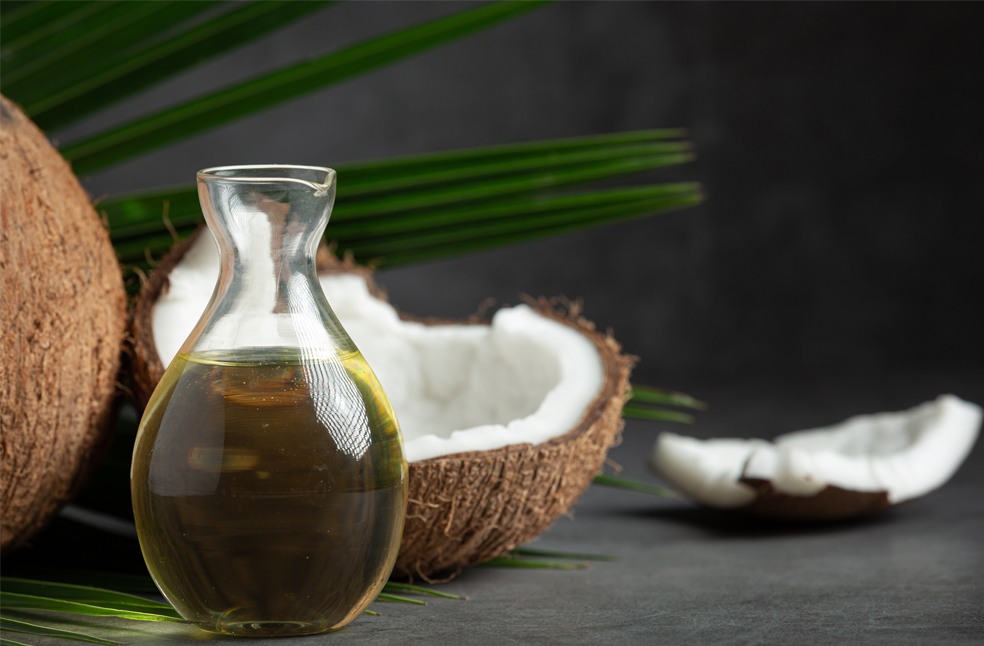Manila / Jakarta: Staying cool this summer is coming at a higher cost, as coconut oil prices, crucial for manufacturing ice cream, have skyrocketed in 2025.
At the end of May, Philippine coconut oil delivered in Rotterdam hit $2,800 per tonne, double the price from the previous year, with further increases expected as demand outpaces supply.
Coconut oil’s unique properties, like a high melting point without compromising flavor or texture, make it ideal for industrial ice cream production.
As a result, rising oil prices have led to a spike in dessert costs. In the UK, ice lollies and cones jumped 7.6 percent in May alone, according to British consultancy RIFT.

Weather woes slash coconut supply
The El Niño weather pattern, which brought extreme heat and drought to key producers Indonesia and the Philippines (who supply 75 percent of global coconut oil), has slashed crop yields.
Since coconuts take a year to mature, last year’s weather is now impacting 2025 supply. The US Department of Agriculture estimates global production for 2024–2025 will fall to 3.6 million tonnes, a 5–10 percent drop from the previous season. Analysts predict output may stay low into the 2025–2026 cycle.
Biofuel mandate diverts billions of coconuts
The Philippine government’s push to increase coco methyl ester blending in diesel, from 2 percent to 4 percent by late 2025 and 5 percent by end-2026, is adding fuel to the price fire.
This requires an additional 900 million coconuts per percentage point, potentially diverting 4.5 billion coconuts, nearly a third of the country’s 15 billion annual crop, towards biofuel.

Energy Secretary Raphael Lotilla praised the strategy, calling it ‘a win-win solution’ for growth, sustainability, and energy goals. However, the move tightens already stressed supplies.
Cocoa crisis shifts demand to coconut
The chocolate industry, battling record-high cocoa prices (peaking at $12,931 per tonne in December 2024 and still around $10,000), is increasingly substituting coconut oil for cocoa butter, especially in vegan and dairy-free products.
Despite rising coconut oil prices, it remains cheaper than cocoa, and substitution is expected to rise, according to Swiss commodity trader Felipe Pohlmann Gonzaga.
Wellness, social media and beauty add pressure
Celebrities like Gwyneth Paltrow and Kourtney Kardashian, along with influencers on TikTok and Instagram, have promoted coconut oil’s health and beauty benefits, driving niche consumer demand.

The oil is also gaining popularity as a natural alternative to palm oil in cosmetics. Wellness Mama, a leading health site, lists over 100 uses for coconut, from treating acne to sunburn.
While health experts still debate its medical benefits, the growing interest from health-conscious consumers adds more stress to limited supply.
Production can’t keep up
Despite high prices, expanding coconut production is not easy. Coconut palms take a year to bear fruit, and deforestation laws make land expansion difficult. EU deforestation regulations restrict importing products from newly cleared land, and upcoming La Niña conditions may bring flooding to Southeast Asia, disrupting harvest and logistics.
“We can expect ice cream prices to be high this summer and stay high next year,” Gonzaga warns. “For ice cream lovers, it may be time to look at fruit-based sorbet substitutes.”



